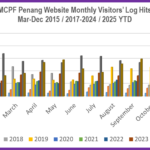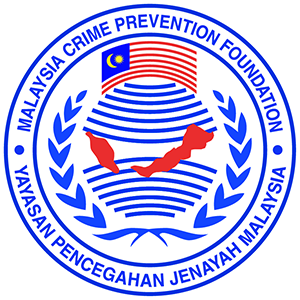
The police force, comprising nearly 137,000 dedicated men and women, is a cornerstone of Malaysia’s internal security and public order.
However, recent debates surrounding promotions, especially at senior levels, have reignited long-standing concerns over the integrity and effectiveness of career mobility and succession planning within the force.
At the heart of the public discourse is a growing perception that the current system of promotions, particularly near the point of retirement, reflects a misalignment of institutional priorities.
Over the past several years, a number of senior officers have been promoted to higher ranks despite having less than a year of service remaining before mandatory retirement at the age of 60.
While such elevations are often justified by experience and service record, their practical utility and long-term implications warrant serious scrutiny.
From an organisational and public policy perspective, this practice is deeply problematic.
First, promotion to a senior rank typically implies an expanded leadership role, the ability to initiate and see through long-term strategic reforms, and to mentor the next generation of leaders.
When officers are promoted within months of retirement, these strategic roles are inherently undermined.
These individuals, while undoubtedly accomplished, are structurally unable to contribute meaningfully in the limited time available, making such promotions largely symbolic rather than operational.
Second, and more critically, these last-minute promotions translate into significantly higher retirement gratuities and pensions, thus, imposing an avoidable and unjustifiable financial burden on the public purse.
This becomes particularly contentious in a national context where fiscal prudence, pension sustainability, and fair remuneration are key concerns.
In essence, taxpayers are expected to underwrite increased retirement payouts that yield minimal or no return in terms of sustained public service.
Over time, this could erode public confidence not only in the force but in the governance of public sector finances.
Strategic human capital management, particularly within an enforcement institution as vital as the police, demands forward thinking succession planning that prioritises merit, continuity, and institutional development.
Promotions should be based not merely on tenure or seniority, but on clear leadership potential, long-term impact, and capacity to drive reform. This includes creating structured pathways for high-performing mid-career officers to rise and contribute meaningfully over an extended period.
Proposed reforms
One key reform would be to introduce a cut-off period for promotional eligibility.
Officers should only be considered for advancement to senior positions if they have at least two to three years of active service remaining.
This practice is well-established in the Australian Federal Police, where promotions close to retirement are avoided to ensure that newly promoted leaders have sufficient time to contribute meaningfully before exiting the service.
It also ensures better return on investment from the public sector and maintains integrity in the use of pension-related resources.
Equally important is the need for transparent evaluation metrics that go beyond time in service.
In the UK, the Metropolitan Police and the College of Policing employ rigorous promotion systems that assess candidates based on leadership ability, innovation, ethical standards, community engagement, and operational effectiveness.
These evaluations are often conducted through independent assessment centres that simulate real-world policing to ensure promotions are based on merit and capability, not merely hierarchy.
To ensure long-term sustainability of leadership, there must also be deliberate efforts to create a talent pipeline within the force
Canada’s Royal Canadian Mounted Police and the New Zealand Police both have institutionalised career development and succession planning strategies that identify promising officers and nurture them through leadership coaching, multi-disciplinary assignments, and ethical leadership training.
These systems are supported by performance tracking and succession planning tools that align talent development with upcoming vacancies and organisational needs.
Moreover, the role of independent oversight cannot be overstated. External or multi-agency panels comprising senior civil servants, retired officers, and independent observers are utilised in countries like the UK and New Zealand to vet senior police promotions and ensure transparency.
This external validation process minimises the risk of internal favouritism or political interference, thereby reinforcing public confidence in the force and its leadership selection process.
Address morale
Beyond structural reforms, the issue of morale within the rank and file must also be addressed.
When junior and mid-level officers perceive the promotional system as arbitrary or biased towards last-minute symbolic elevations, it creates a climate of disillusionment and disengagement.
Over time, this undermines motivation, loyalty, and performance across the organisation.
It also drives capable officers to prematurely exit the force or become passive in their roles, believing that leadership pathways are inaccessible regardless of effort or merit.
This brain drain, both literal and psychological, weakens the force’s long-term institutional resilience.
Additionally, true reform requires not just policies but a transformation of organisational culture.
The police force must cultivate a values-based culture where leadership is seen as a duty to serve and elevate others and not merely a reward or entitlement. This includes promoting ethical behaviour, transparency in decision-making, and accountability at all levels of leadership.
Cultural transformation may take time, but without it, even the best-formulated promotion policies risk being undermined by entrenched informal networks and outdated mindsets.
Leadership succession must therefore be aligned with a broader institutional commitment to reform, integrity, and service to the nation.
If left unaddressed, the existing system not only risks demoralising capable mid-ranking officers, but also exacerbates perceptions of elitism and internal patronage, both of which are toxic to a disciplined, merit-based service institution.
A lack of transparent career mobility not only hinders operational effectiveness but can also drive away talent, weakening the institution from within.
Succession planning in policing is not just about filling positions, it is about preparing future leaders who can adapt, innovate, and uphold the rule of law in a rapidly changing security environment.
By adopting international best practices, from structured promotion timelines to leadership pipelines and independent vetting, Malaysia can build a police leadership structure that is ethical, efficient, and sustainable.
The time is ripe for the police force to strengthen its institutional backbone through accountable, transparent, and forward-looking career development practices.
Anything less not only shortchanges the organisation but also the citizens it is sworn to serve.
This article first appeared on FMT.
Past Events
- MCPF Penang Website www.mcpfpg.org Visitors’ Log hits a Monthly Record high of 23.24k in November 2025. Cum-to-date total: 977,865 (March 2016 to November 2025)
- MCPF SPS DLC participates in Camp for Uniformed Bodies at SJK (T) Nibong Tebal
- MCPF Penang engages in Operational Meeting at SMK Mengkuang, Bukit Mertajam to follow-up on CCTV Project Proposal
- MCPF Penang Quartermaster Munusamy Muniandy does an on-site Housekeeping / Maintenance inspection of MCPF Penang Office at PDRM IPK P. Pinang
- MCPF Penang & SPS DLC participates in PDRM’s Launching Ceremony of Amanita Taman Angkat at ADTEC ATM Kepala Batas






